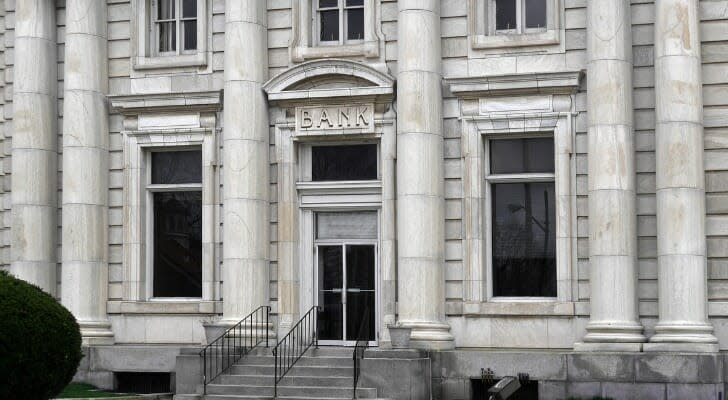What Is a Bank Holiday?

Most banks are open for business Monday through Saturday. But occasionally you might show up at your bank on a weekday and find that the bank has been closed all day. Because most banks follow a federal holiday schedule, their branches may be closed for business on that day. There are usually 10 such bank holidays in the U.S. every year.
What Is a Bank Holiday?
To answer this question, we’ll need to be a bit more specific. In the United Kingdom and in the Republic of Ireland, the term Bank Holiday has a legal definition, established by laws such as the Bank Holidays Act of 1871, the Bank Holiday Act of 1903 or the Banking and Financial Dealings Act of 1971.
In the United States, the term is more colloquial. It most closely resembles a federal holiday, which is a collection of 10 or sometimes 11 days of the calendar year in which all federal institutions close their doors. Most banks in the U.S. follow the same calendar as the U.S. Federal Reserve, which means the banks close on these holidays as well.
(The United States technically has no national holidays, because the United States Congress only has the authority to establish holidays for federal institutions. In practice, though, most states recognize these federal holidays as state holidays as well.)

What Are the U.S. Federal Holidays?
There are usually 10 federal holidays in each calendar year. They are New Year’s Day, Martin Luther King Jr. Day, George Washington’s Birthday, Memorial Day, Independence Day, Labor Day, Columbus Day, Veterans Day, Thanksgiving and Christmas Day.
Banks across the country will most likely close their doors on these days, although there may be an exception here and there. Most banks choose to observe Presidents’ Day rather than George Washington’s birthday. Also, not every bank will close for Columbus Day. Every four years, Inauguration Day pushes this list up to 11. This is mostly for banks in Washington, D.C., as most businesses close for the day to reduce congestion caused by the actual inauguration ceremony.
Please refer to the below table to see the date that corresponds with each holiday.
U.S. Federal Holidays Holiday Date New Year’s Day January 1 Martin Luther King Day Third Monday of January Presidents’ Day Third Monday of February Memorial Day Last Monday of May Independence Day July 4 Labor Day First Monday in September Columbus Day Second Monday in October Veterans Day November 11 Thanksgiving Fourth Thursday in November Christmas Day December 25 What to Do If Your Bank Is Closed
In many cases, the bank holiday might correspond to a day you already have off from work; if you know such a day is coming up and you’ve got business to conduct at the bank, try to get your banking done in advance. And if you habitually visit a branch in person to do your banking, then make sure to mark these dates on your calendar. Once you know them in advance, you can plan ahead to ensure you never have any banking you have to do on a holiday.
If you find yourself in dire need of your bank on a holiday, then all hope might not be lost. Most banks have online banking services available to customers, so you may be able to do what you need to do on your computer or smartphone – from paying your credit card bill to making a transfer. If you just need cash from your bank account or need to deposit a check, you can simply head to an ATM; even those ATMs attached to a bank branch will usually be accessible on days that the branch is closed.

The Takeaway
Bank holidays in the U.S. tend to correspond to federal holidays. If you try to avoid doing any banking on these federal holidays, then you shouldn’t have any problems. However, if you’re ever unsure about whether your bank is open or not, the most foolproof way to find out is just to give the bank a call. That way, you can know for sure before driving all the way there.
Tips for Banking Responsibly
If you’d rather not have to worry about holidays or business hours, you might be better suited for online banking. Without having to travel to a traditional branch, you can conduct your business online in your own time. Plus, you’ll still be able to access a network of ATMs if you need cash.
When dealing with any bank, it’s crucial that you make sure you’re not paying any sneaky fees. Unnecessary fees can cut into your savings and erase the benefits of using a bank in the first place. One way to avoid this is to look for a free checking account at your preferred bank. You can easily access your money without having to worry about losing any of it.
Saving money isn’t always easy, but talking with a financial advisor can give you peace of mind that you’re on the right track. SmartAsset’s free advisor matching tool can match you with up to three qualified advisors in your area. Finding an advisor who fits with your goals can help you save more and prepare for your retirement the right way.
Photo credit: ©iStock.com/gmutlu, ©iStock.com/peterspiro, ©iStock.com/RossHelen
The post What Is a Bank Holiday? appeared first on SmartAsset Blog.
